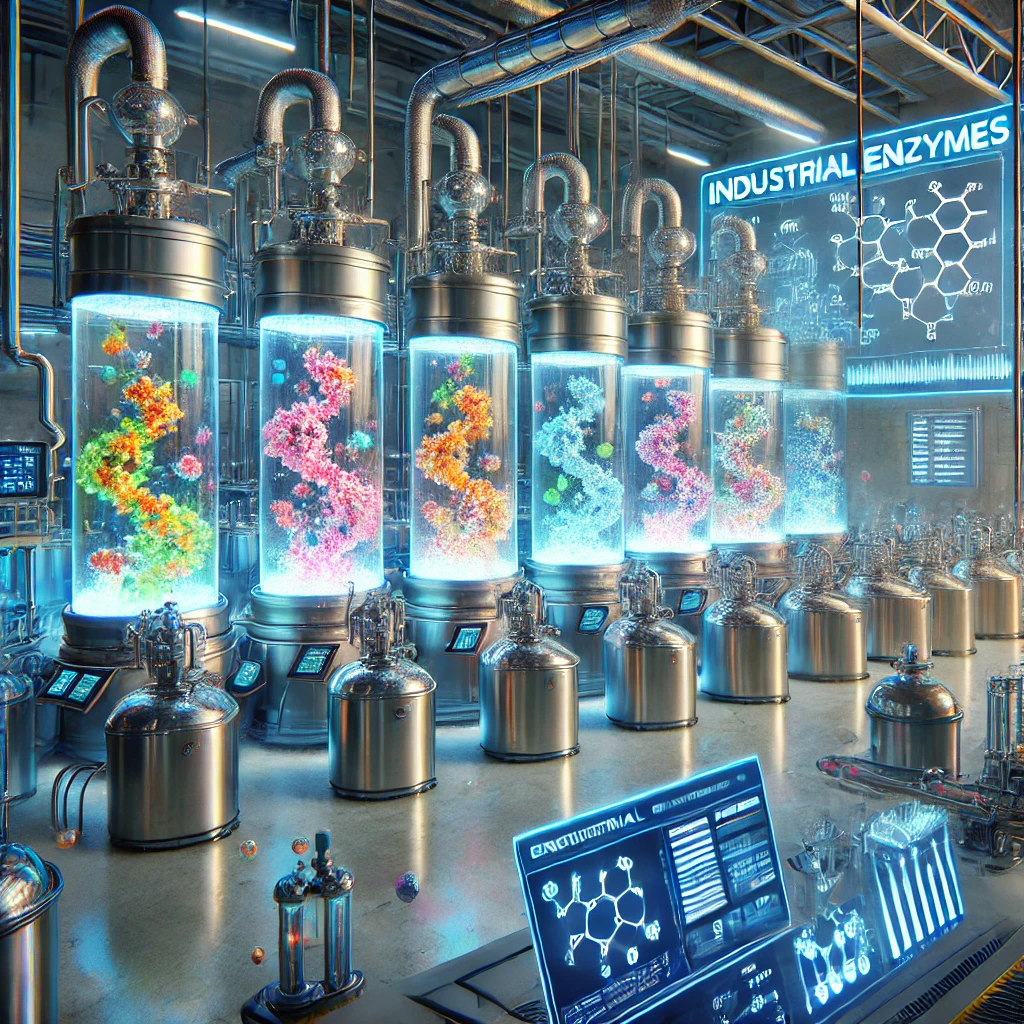The global industrial enzymes market is projected to grow from USD 7.9 billion in 2024 to USD 11.2 billion by 2029, registering a CAGR of 7.2% during the forecast period. This growth is primarily driven by increasing demand across various manufacturing sectors, including food and beverages, biofuels, and textiles. Enzymes are emerging as sustainable alternatives to conventional chemical processes due to their eco-friendly nature and efficiency.
Advancements in biotechnology and protein engineering have significantly expanded enzyme applications and improved their effectiveness. Additionally, supportive government regulations and stringent environmental laws—such as the U.S. Toxic Substances Control Act and the Canadian Environmental Protection Act—are promoting the adoption of enzyme-based technologies. The rising global demand for clean-label and organic food products further accelerates the market, as enzymes align with natural and sustainable ingredient requirements.
Download PDF Brochure: https://www.marketsandmarkets.com/pdfdownloadNew.asp?id=237327836
Dominant Applications: Food & Beverages
The food and beverage sector is anticipated to lead the industrial enzymes market in terms of application during the forecast period. Consumer preferences are shifting towards natural, sustainable, and health-conscious food options. Enzymes are ideal for this shift, offering both enhanced processing efficiency and the ability to retain natural product characteristics. They are instrumental in developing innovative products like plant-based, lactose-free, and gluten-free foods—segments that are experiencing rapid growth.
Enzymes also contribute to improved texture, flavor, and shelf life, making them valuable for food manufacturers. As innovation continues to reshape the food industry, the demand for enzymes is expected to increase significantly.
Leading Type Segment: Carbohydrases
Among enzyme types, carbohydrases are projected to hold the largest market share over the forecast period. This segment’s growth is driven by rising demand for processed foods that require enhancements in texture, flavor, and shelf life. Carbohydrases facilitate the breakdown of complex carbohydrates into simple sugars, making them crucial in industries like baking, brewing, and biofuel production.
Moreover, the increasing focus on healthier food formulations has elevated demand for carbohydrases, as these enzymes assist in reducing sugar content. They enable the production of low-calorie sweeteners by converting starches into sugars. The surge in biofuel production, driven by the need for renewable energy sources, also contributes to this segment’s expansion. Carbohydrases play a key role in converting biomass into fermentable sugars essential for bioethanol manufacturing.
Request Sample Pages: https://www.marketsandmarkets.com/requestsampleNew.asp?id=237327836
Regional Insights: Asia Pacific Leads in Growth
The Asia Pacific region is expected to register the highest CAGR in the industrial enzymes market during the forecast period. The region’s rapidly growing food and beverage industry is adopting enzymes to improve product quality and shelf life. Government initiatives promoting biofuels have also boosted enzyme usage in bioethanol production.
Additionally, the textile industry’s expansion and its shift towards environmentally friendly processes are driving enzyme demand. Agricultural advancements focused on sustainable farming further support the adoption of enzyme technologies in the region.
Leading Industrial Enzymes Manufacturers:
The key players in the industrial enzymes market include BASF (Germany), Novozymes (Denmark), DuPont (US), DSM (Netherlands), Associated British Foods plc (UK), Kerry Group plc. (Ireland), Advanced Enzyme Technologies. (India), Chr. Hansen Holding A/S (Denmark), Amano Enzyme Inc. (Japan), Aumgene Biosciences Pvt. Ltd. (India).
BASF
In April 2021, in order to invest at the Kundl/Schaftenau Campus in Austria, BASF made an agreement with Sandoz GmbH, a division of Novartis. Through this arrangement, BASF is able to expand the scope of its enzyme and biotechnology product production. Both sides agreed that the financial terms of the deal should remain confidential. The arrangement enables BASF to increase the size of its detergent enzyme production facility, extend the range of its products, and maintain its market-leading position in the home care and I&I sector. One of the world’s top producers of generic drugs and biosimilars, Sandoz is a branch of the Novartis Group. The division was created in 2003 when Novartis combined all of its generics businesses under the umbrella of Sandoz, a single well-established global brand. Since then, Sandoz has expanded into a market leader in generics, with annual sales of about USD 10 billion.
Novozymes
A significant player in the biotechnology industry, Novozymes offers biological solutions that use a variety of enzymes and microbial applications. The business serves sectors like household care, food and beverage, bioenergy, agricultural and feed, and technical and pharmaceutical. The company’s primary business divisions include household care, food, beverage, and human health. North America, Latin America, Asia Pacific, Europe, the Middle East, and Africa are among the regions that Novozymes has catered to. In North America and Latin America, the bioenergy market is largely dominating. The company’s technical & pharma division sells enzymes for the textile, pharmaceutical, and other industries. In December 2022, Chr. Hansen and Novozymes, two biotechnology firms, will join to form a new, enormous global ingredients company. Chr. Hansen will be purchased by Novozymes for around USD 12.3 billion. The deal is anticipated to be finalized no later than the fourth quarter of 2023.
Make an Inquiry: https://www.marketsandmarkets.com/Enquiry_Before_BuyingNew.asp?id=237327836

